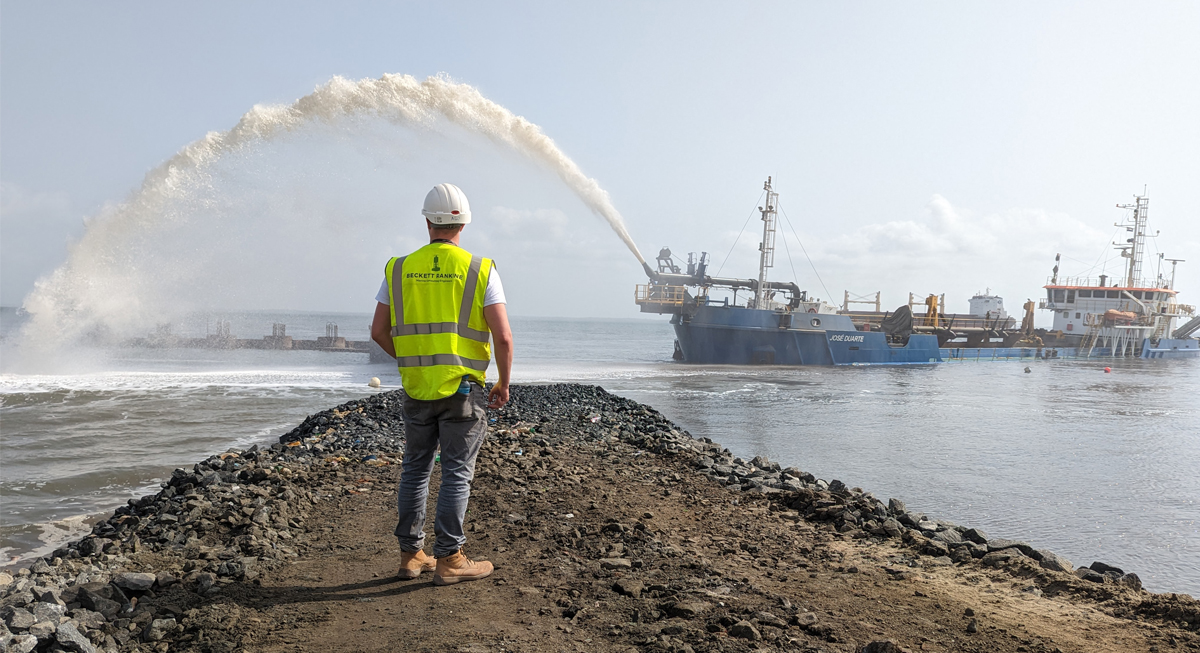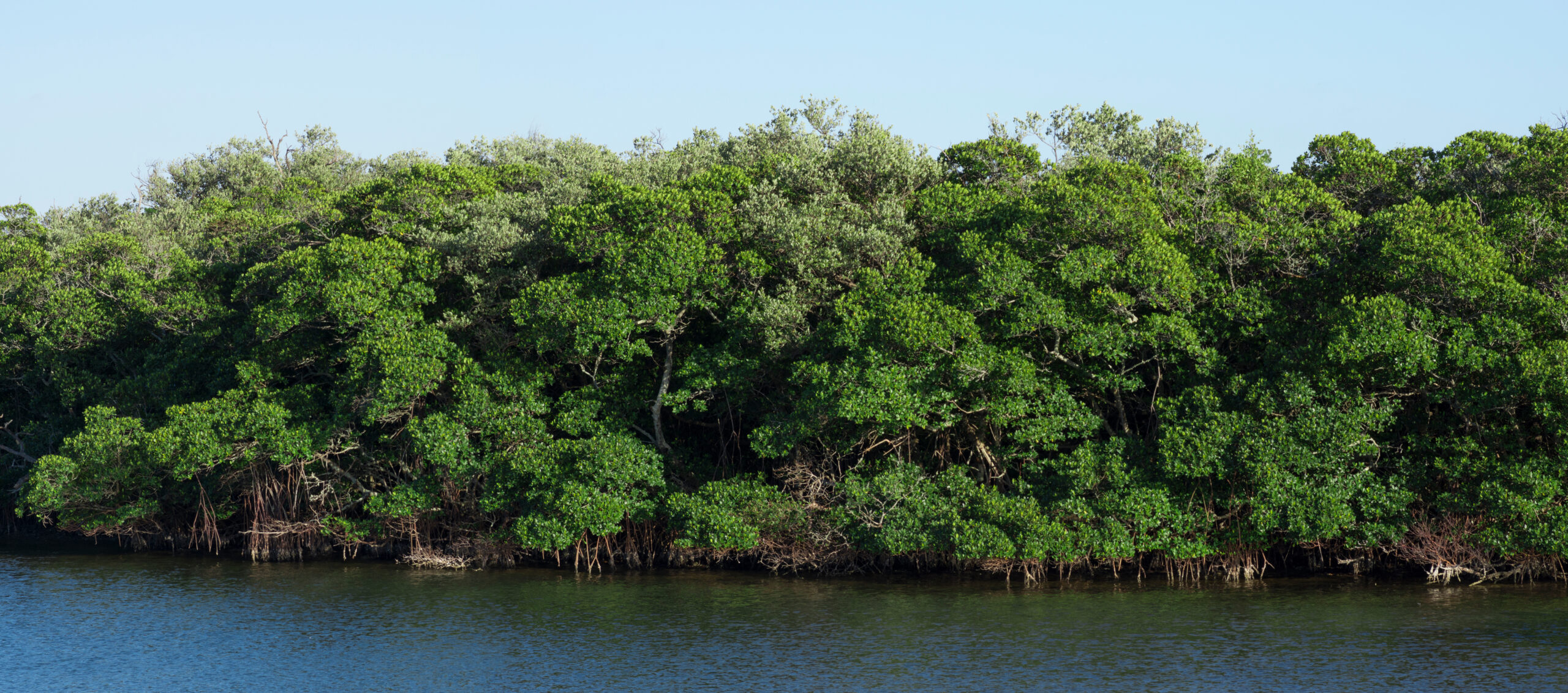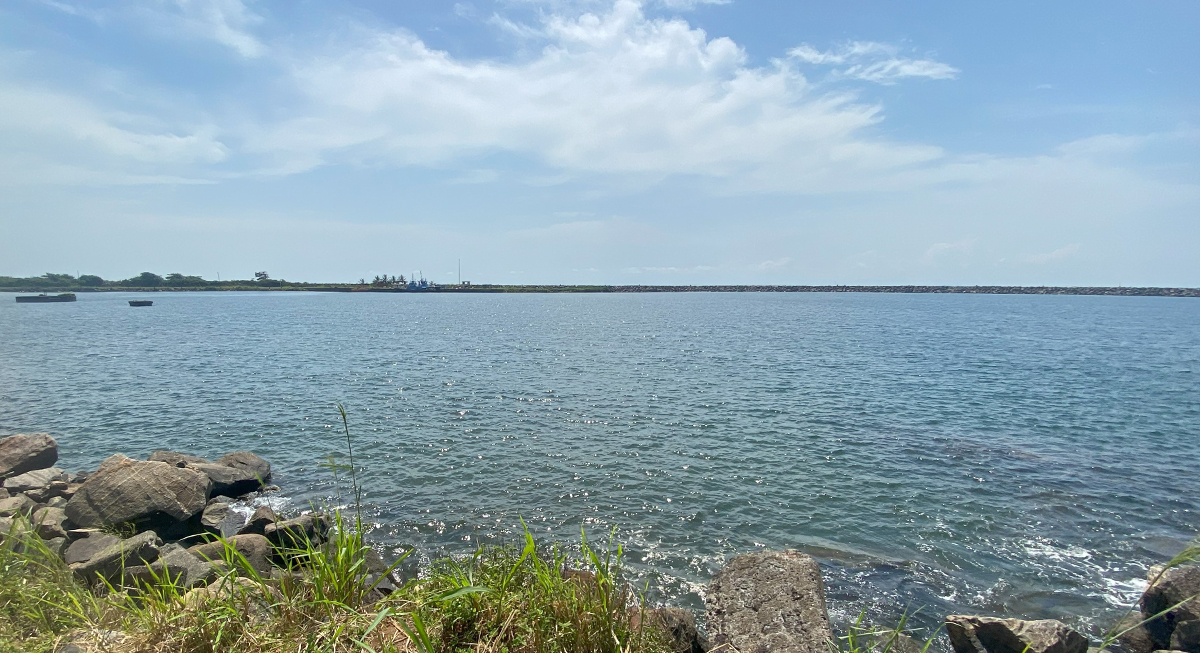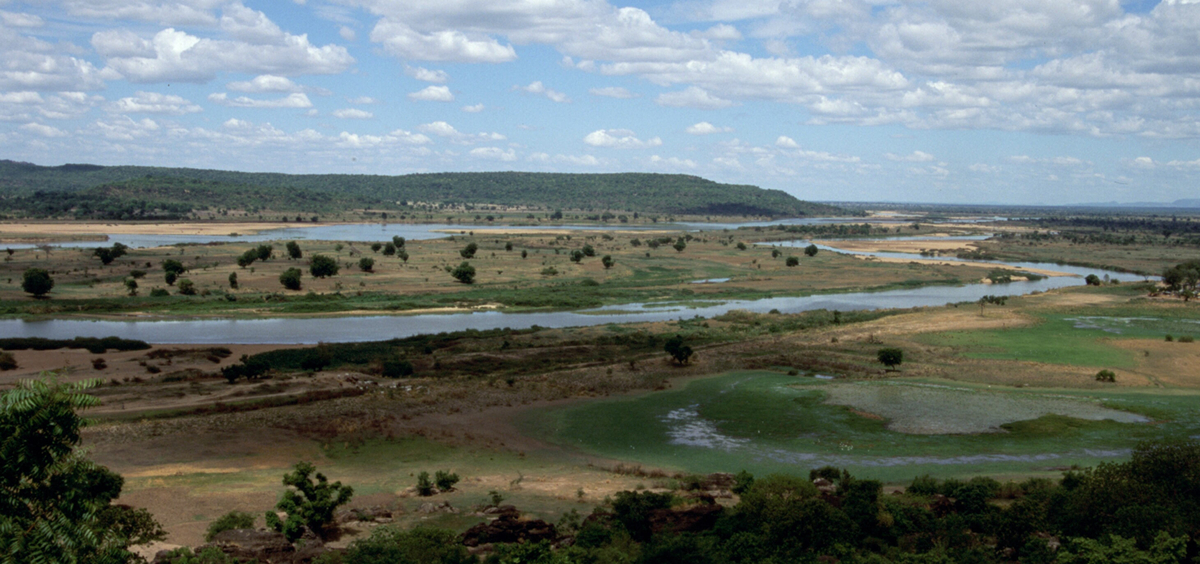Beckett Rankine is delighted to be attending the 35th PIANC World Congress in Cape Town, South Africa, this year.
We’re responding to the Congress theme, ‘Future ready waterborne transport – unlocking Africa’, by presenting our paper on the Freetown Port Expansion project, Sierra Leone.
The Freetown project is just the latest of our maritime civil engineering projects taken to completion in the region.
A significant number of our international projects over the last 25 years have taken place in Africa. Many have been in the West African region including Nigeria, Ghana, Sierra Leone, and Liberia, as well as projects in Angola, Kenya, Libya, Egypt, Tanzania and Mozambique.
We have carried out the development and expansion of multiple ports, masterplanned LNG and other terminals, and designed new fast ferry routes.
Highlighted projects



We know there is no one-size-fits-all approach to maritime engineering. During international projects, our engineers are involved via remote coordination and project management, as well as providing a practical, supportive presence on the ground.
We bring a wealth of knowledge for bespoke, creative problem-solving, working with local contractors and experts to navigate the unique opportunities and challenges of each location.
Would your project benefit from maritime engineering specialists?
More examples of our work in Africa
LNG SERVICE BERTHS – SOYO, ANGOLA
Angola LNG were developing a LNG plant near Soyo in northern Angola to export Liquified Natural Gas (LNG), Liquefied Petroleum Gas (LPG) and Condensate. Marine operations would be supported by a fleet of service vessels that assist the docking and undocking of the tankers, as well as provide safe escort in the approach channel.
Beckett Rankine was commissioned to undertake a suitability assessment and FEED engineering study for a LNG service vessel base for this terminal.
PEMBA PORT – MOZAMBIQUE
We carried out a site inspection of the existing port facilities at Pemba and assessed its potential use as a logistics base to support the nearby LNG project in Northern Mozambique.
We developed and costed plans to adapt the facilities for handling bulk materials, including stones and aggregates for major construction works for the new LNG terminal. With several abundant quarries nearby, construction was mainly rock with connected floating pontoons for berthing larger vessels in deeper water without the need for dredging.
MISURATA PORT EXTENSION – LIBYA
Misurata City has been the major trade and commerce hub for Libya for 3,000 years. Present day operations at the port were restricted by its size and facilities and an expansion was needed to cope with an increase in container trade. Beckett Rankine prepared the Masterplan for the expansion that would enable the port to berth super post Panamax ships, one of the largest container vessels in the world, and so become a hub for the Central Mediterranean.
ENGLISH POINT MARINA – KENYA
Conducted a feasibility study for a new marina on an inland creek’s natural harbour, encompassing consideration of the key marine issues, preliminary concept drawings for the marina basin, an outline design for the breakwater for budget costing and options and recommendations for the way forward. As East Africa’s first floating pontoon marina, with fully serviced berths, it is now an attractive waterside leisure site.
OFFSHORE SUPPLY BASE – ABASI, NIGERIA
We planned a new offshore supply base at Ikot Abasi in Nigeria. The site was selected following an options study of possible locations on the Imo River that considered the user requirements in conjunction with the natural marine conditions, shoreside connections and proximity to oil fields.
The chosen site was 120Ha of undeveloped low lying land. The proposed facilities include berths offshore supply vessels with up to 8m draught, laydown areas, storage tanks, workshop buildings and all services and supporting infrastructure.
AGBARA PORT – LAGOS, NIGERIA
Beckett Rankine undertook a masterplan feasibility study for a new transhipment terminal. In order to relieve congestion in Lagos, the proposed terminal aimed to facilitate transport of cargo from Apapa Port to Ologe Lagoon. The feasibility study identified an efficient terminal layout, forecasting of cargo throughput, and optioneering of the most cost-effective vessels.
SNAKE ISLAND – LAGOS, NIGERIA
Snake Island’s eastern quay wall had fallen into disrepair and needed urgent remedial work to make it suitable for heavy loading vehicles and the increase in capacity that the port was experiencing. Beckett Rankine produced design calculations, construction drawings and works specifications for the remedial work.
The critical consideration was the structural design of the load relieving platform to support the existing sheet pile wall and accommodate the increased surcharge load due to the load out operations.
OFFSHORE SUPPLY BASE – LAGOS, NIGERIA
We carried out technical due diligence for a transaction involving the refinancing and development of an offshore supply base in the Lagos area. This involved inspection of the current facilities and consideration of the potential for expansion, both in terms of access for vessels and landside connections to the hinterland. Some existing storage facilities can be converted with new berths linking to a neighbouring greenfield site.
RIVER BENUE DREDGING – NIGERIA
The Benue is a large river with many islands and sand bars. Dredging the river to improve navigability was part of the Late President Umaru Yar’adua’s seven-point plan to enhance the Nigerian economy.
Beckett Rankine was appointed to advise on introducing improvements to the River Benue for better navigation. The work included carrying out mathematical modelling of the river, designing dredging and river training works to improve the navigational depth during the dry season.
OLOKOLA LNG – NIGERIA
A four-train OK-LNG located on the border of Ogun and Ondo was to be developed as a joint venture of the Nigerian state with Royal Dutch Shell, Chevron and BG Group to export Nigerian natural gas.
M.W.Kellogg was developing FEED designs and appointed Beckett Rankine to undertake the trestle design, including options for construction of an 8km trestle that included road and pipe-rack requirements and optimum spans. Designs considered modular assembly using steel or PC concrete frames using jack up barges or launching girders end over end from shore.
NOTORE CHANNEL AND NAFCON BERTH – NIGERIA
Having acquired the National fertilizer company of Nigeria (NAFCON) in 2005, the new owners wished to increase the production capacity of the plant and the size of vessels exporting bulk fertiliser shipments along the Notore River.
Beckett Rankine, in association with Allott Nigeria, were commissioned to survey the existing channel and provide a condition survey of the existing berth.
LAGOS FERRIES – NIGERIA
Beckett Rankine has been working as the Maritime Infrastructure Expert on a Future Cities project funded by the UK Government. The project objective is to implement several new ferry services on the Lagos waterways to relieve the city’s chronic road trac congestion.
Our role in the team has been to inspect the existing terminals and ferry routes and to develop plans for the expansion and improvement of the existing terminals and the development of new terminals. The project involves the introduction of new fast passenger ferries of circa 100-person capacity. For these vessels to operate safely, dredging and additional navigational infrastructure is also required.
IBETO CEMENT TERMINAL – NIGERIA
A low-lying area downstream of Port Harcourt in Nigeria had been chosen as the site for a new cement unloading terminal. Good marine and land access made it an ideal place for the industrial development by Ibeto Industries.
In a joint venture with Allott, Beckett Rankine undertook the planning, design and supervision of the marine and land works. These comprised initial investigations, dredging/reclamation, site layout, planning and design of the marine works.
ONNE CEMENT TERMINAL – NIGERIA
A new bulk cement terminal was to be built at Onne, near Port Harcourt. The project required dredging to deepen the access channel and an access road was needed over the swamp, as well as a jetty and berthing dolphins with shoreside administration and support facilities.
Working closely with a team of local engineers, Beckett Rankine planned and designed the marine and shoreside facilities for the cement terminal, including navigation channels and road access.
PEPEL TEMPORARY JETTY – SIERRA LEONE
The Tonkolili iron ore deposit is located east of Freetown in Sierra Leone. It had been decided to mine the ore, and an extensive new pit-to-port infrastructure was needed to develop the project, including the construction of a new narrow gauge railway to Pepel Port where the ore would be loaded onto bulk carriers for export.
The jetty was constructed to provide a heavy-duty berth for the rolling stock for the new railway line. The design had to be carried out at short notice using steel from UK, with details being worked out while the steel was in transit.
RAS TROMPY RESORT – EGYPT
The Client wanted to create a high quality, unique holiday destination on the Red Sea’s coast, with a specific focus on water features and maritime activities.
Beckett Rankine analysed the issues relating to the establishment of the resort along the coastline and provided expert advice on the marine elements of the development’s masterplan. Site visits were conducted and data collection from similar developments in the region was carried out.
TANGIER RORO RAMP EXTENSION – MOROCCO
The Port of Tangier is a very important site for ferry services. A new extension to the main ramp was needed for larger RoRo vessels to load and unload.
Beckett Rankine developed a design that would see the end of the existing ramp increased in width to incorporate the new, larger ships using the port. This would hopefully lead to a rise in the efficiency and productivity of the port and so establish it as a major destination.
LAKE TRANSPORT STUDY – TANZANIA
The Economic and Legal Advisory Services Division of the Commonwealth Secretariat was formulating plans to privatise marine transportation.
Beckett Rankine inspected the craft and facilities already in use at the sites to assess the efficiency of the existing operation. A suitable strategy was then developed to maximise potential revenue.


